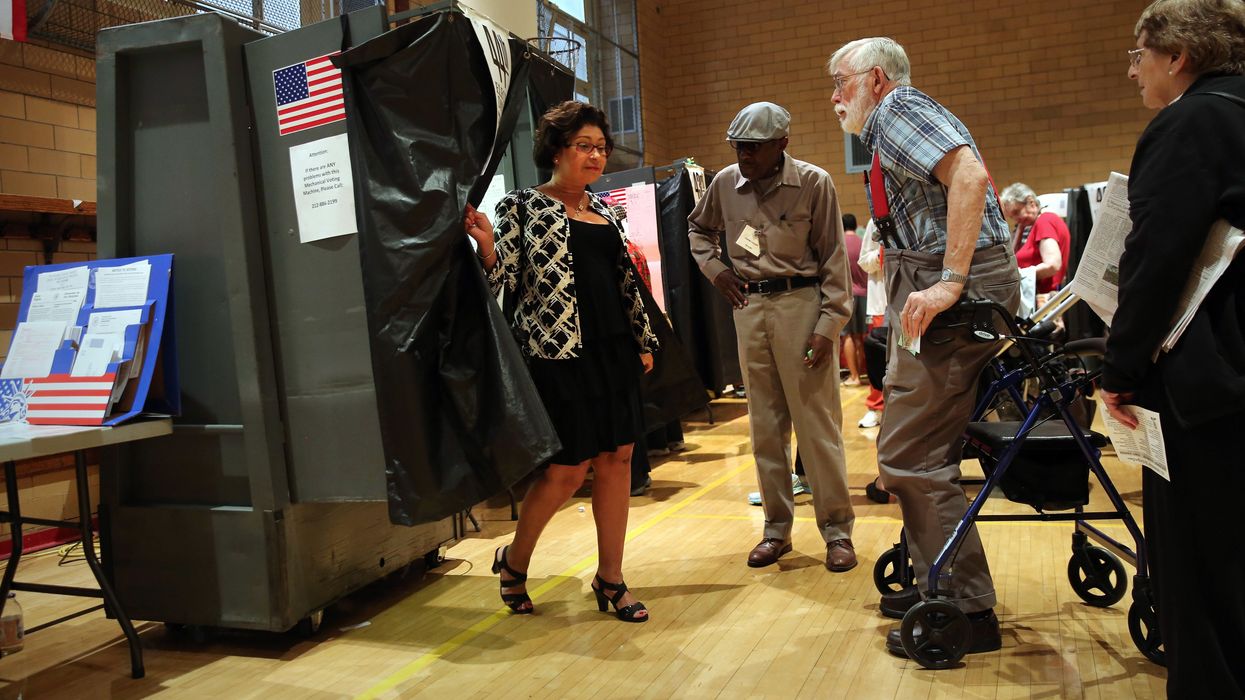Shentrup is an independent voting methods researcher and activist.
In his Dec. 12 opinion piece for The Fulcrum, "Why RCV beats approval voting," Lee Drutman gets one thing right: America currently uses the world's worst voting method. But his comparison between approval voting and the ranked-choice system called "instant runoff voting" gets the major points wrong. Approval voting beats this form of RCV in every way we can measure.
It's unfortunate to see conflict among those who want to improve the way we vote. Ultimately we're allies pulling toward the same goal of a more fair and just democracy. At the same time, it's important to understand how the voting methods compare.
My aunt favors Elizabeth Warren but will vote for Joe Biden in the Democratic presidential primary because of concerns over electability versus President Donald Trump. Her nightmare is that Warren clinches the nomination, but loses the general election to Trump, leaving her to wish she had strategically voted for Biden in hindsight.
Now imagine we switch to instant runoff voting — the RCV method adopted in Maine in New York City — and dispense with the need for a primary. Drutman argues this eliminates strategic voting. But this is not so; it punishes voters for supporting their honest favorite candidate. Under the rules of IRV, my aunt's strategic choice of Biden would be analogous to misordering the candidates, marking Biden as her first choice instead of Warren in order to help Biden (in her view the strongest candidate) make the final round against Trump. That is, she would promote Warren's early elimination in order to help the stronger candidate, Biden, run against Trump.
Thus for strategic voters, the most popular form of RCV is virtually identical to our current choose-one system. Drutman claims that approval voting"typically winds up looking suspiciously like the plurality voting it was designed to replace." But on closer inspection we see that his preferred system is vulnerable to this critique, not approval voting.
Approval voting is mathematically guaranteed to avoid this strategic betrayal of one's sincere favorite. While my aunt might cast a strategic approval vote for Biden, she could also cast an honest vote for Warren, as that could not possibly hurt her. In voting theory parlance we say that approval voting satisfies the favorite betrayal criterion.
Such properties make approval voting extremely resistant to the negative effects of strategic voting and have won over supporters such as Steven Brams, a New York University professor who began studying approval voting in the 1970s and has written such page turners as "Game Theory and Politics," "Fair Division" and "Mathematics and Democracy."
Drutman plays a two-part sleight of hand. First, he suggests the optimal approval voting tactic is bullet voting. It isn't. Next he wants us to believe pervasive bullet voting — voting only for one's favorite candidate — causes approval voting to mimic our current system in which strategic voting means not voting for one's favorite. These are contradictory outcomes.
His reference to approval voting elections such as those at Dartmouth College is particularly problematic. Dartmouth math professor Robert Norman found that voters in the last trustee election approved of an average of 1.81 candidates out of a maximum of 4. Thus, the proportion of bullet votes was as low as 19 percent and no higher than 60 percent. Dartmouth later reverted to choose-one voting — making everyone "bullet vote." While this isn't a great outcome, it's clear that bullet voting was not the problem.
Compare that to the San Francisco mayoral election of 2007, when 12 candidates ran. FairVote, a leading RCV advocacy group, touted the city's adoption of that system as a "great success." But a look at the numbers revealed 53 percent of ballots were "bullet" style.
In his 2008 book "Gaming the Vote," William Poundstone cites computer modeling by Princeton math Ph.D. Warren Smith, which measures voter satisfaction with electoral outcomes under several different voting methods. Smith's simulations found approval voting outperformed IRV regardless of the extent of strategic voting. So when Drutman claims advocates of approval voting assume "sincere voting and genuine indifference among voters," nothing could be further from the truth. Even in the most unfavorable scenario possible, approval voting still came out on top, meaning that overall voters were more satisfied.
Approval voting also tops RCV in a variety of practical and logistical ways.
Approval voting is additive, so it allows for a simple transparent sum of votes cast for every candidate. This is crucial for giving all candidates an accurate measure of their support. In a multiballot exit poll conducted in New York City for the 2012 presidential race, Green Party candidate Jill Stein received a mere 3.2 percent to President Obama's 84.9 percent. Under IRV, Stein received 3.9 percent to Obama's 83.8 percent — a scant difference. Stein was the second choice of many Obama voters, but because of RCV's opacity, that was hidden from public view. But under approval voting, Stein received 51.9 percent approval while Obama received 89.9 percent. Imagine how much harder it would be for the mainstream media and party establishment to marginalize third-party voices with such a powerful indicator of support.
Approval voting can be conducted with no major changes to voting machines or counting procedures. It only removes the rule that says your vote is discarded if you support more candidates than there are winners. One less rule than we have now. It doesn't get any simpler than that.




















